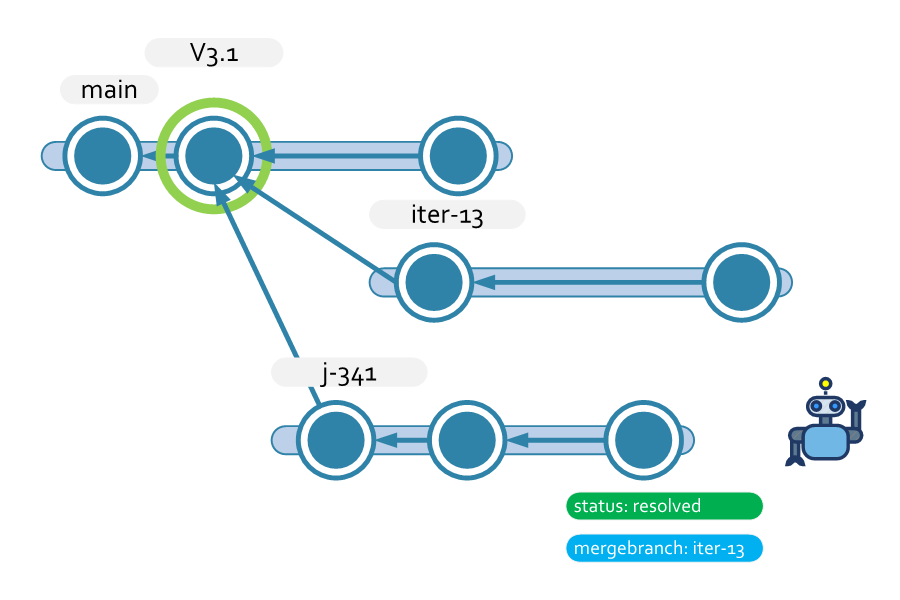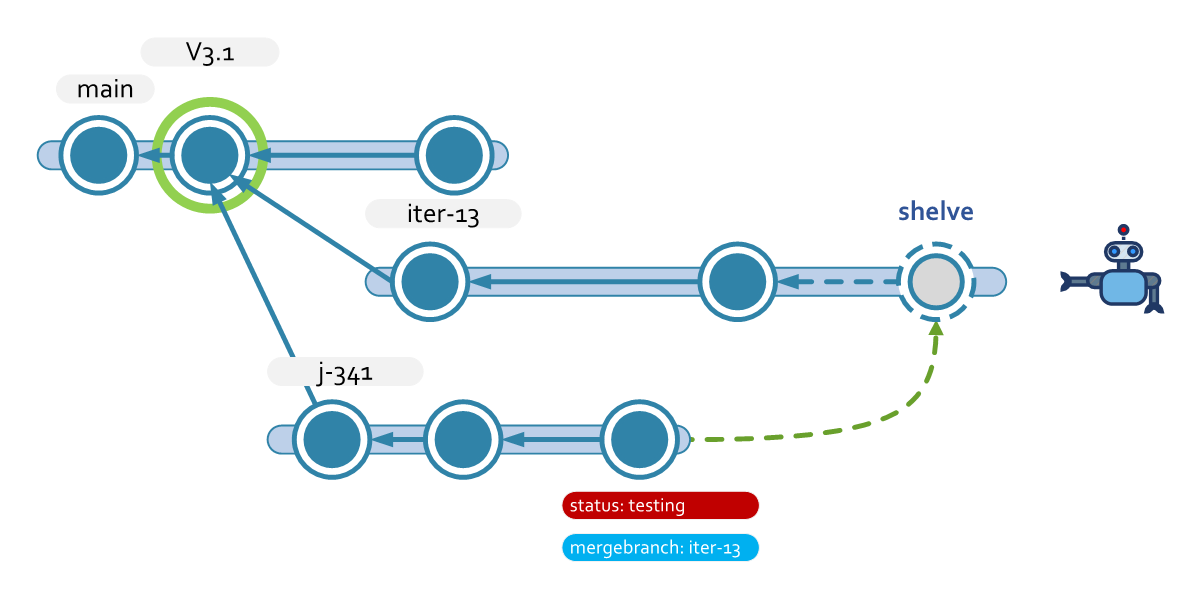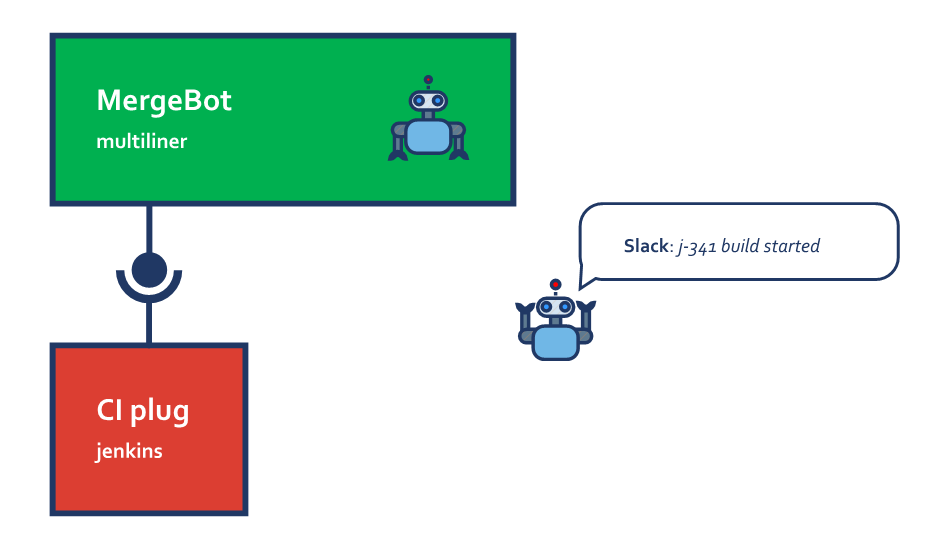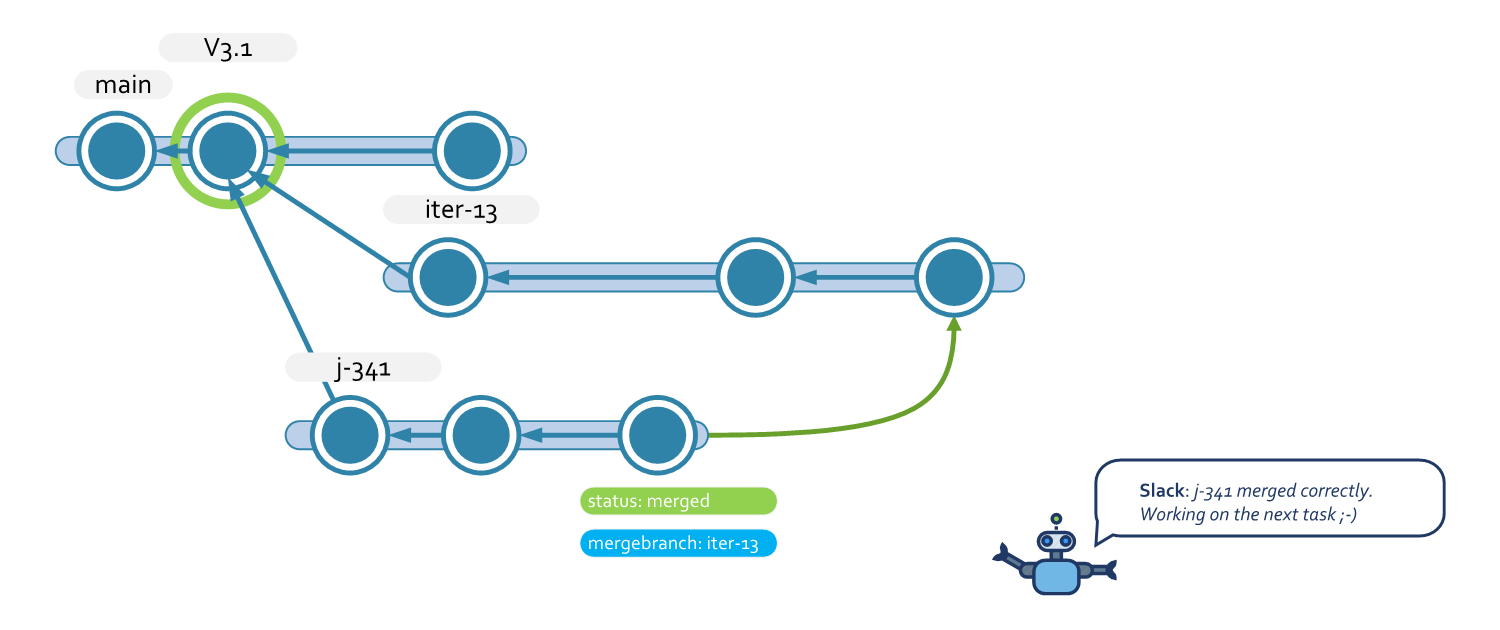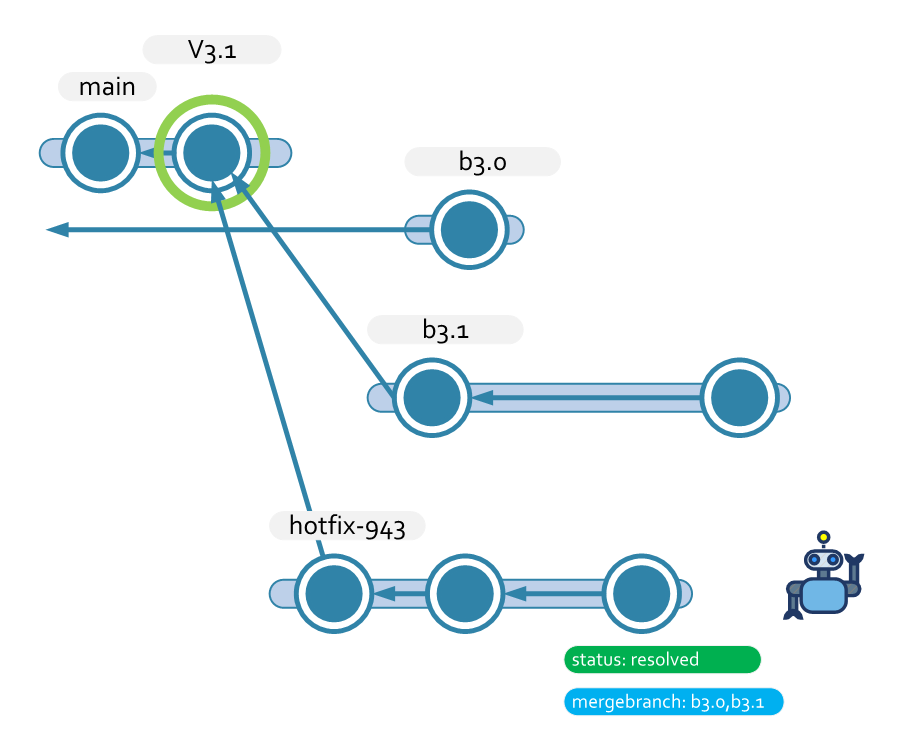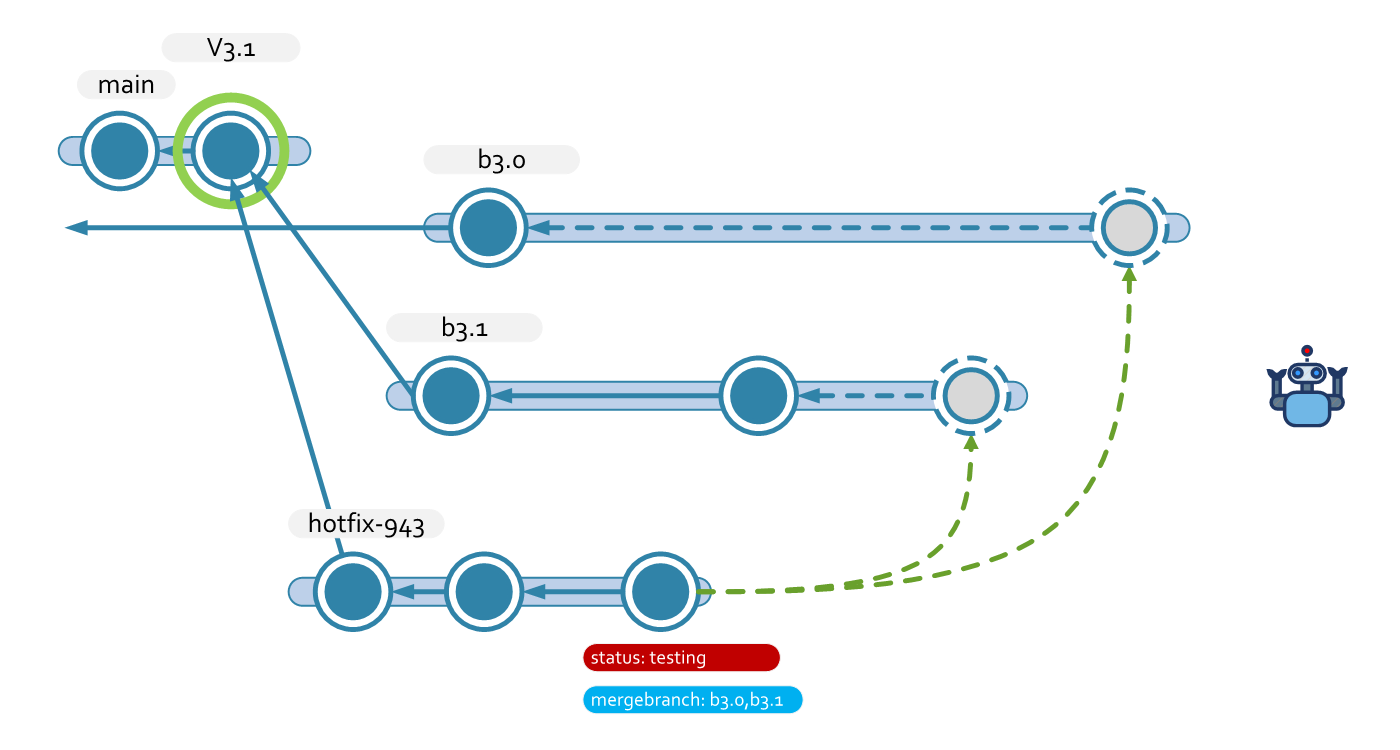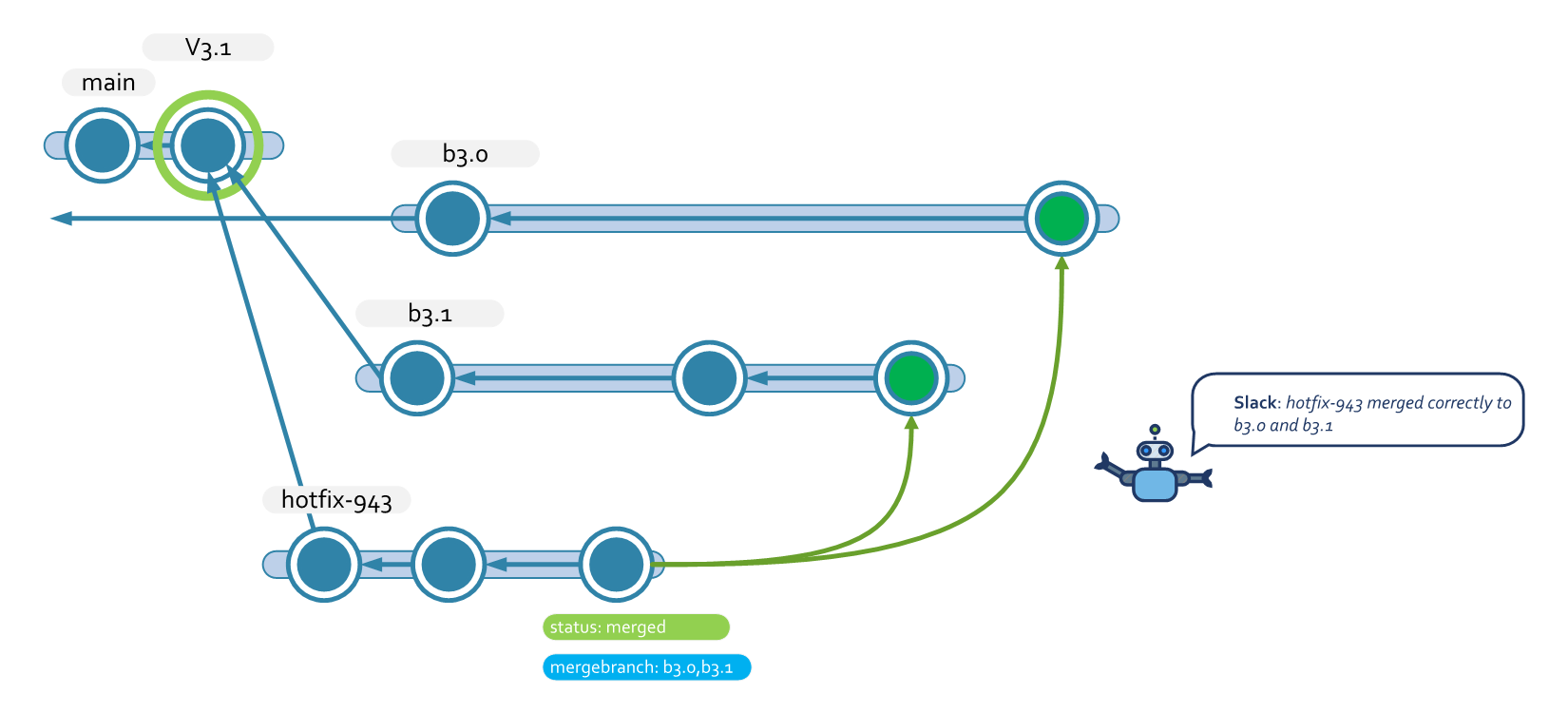Each task branch is built, tested, and merged to the specified branches in an attribute of the processed task branch
The executable is built from .NET Framework code using the provided src/multiliner-mergebot.sln
solution file. You can use Visual Studio or MSBuild to compile it.
Note: We'll use ${DEVOPS_DIR} as alias for %PROGRAMFILES%\PlasticSCM5\server\devops
in Windows or /var/lib/plasticscm/devops in macOS or Linux.
If you just want to use the built-in multilinerbot you don't need to do any of this. The multilinerbot is available as a built-in mergebot in the DevOps section of the WebAdmin. Open it up and configure your own!
You'll notice some configuration files under /src/configuration. Here's what they do:
multilinerbot.log.conf: log4net configuration. The output log file is specified here. This file should be in the binaries output directory.multilinerbot.definition.conf: mergebot definition file. You'll need to place this file in the Plastic SCM DevOps directory to allow the system to discover your multilinerbot.multilinerbot.config.template: mergebot configuration template. It describes the expected format of the multilinerbot configuration. We recommend to keep it in the binaries output directorymultilinerbot.conf: an example of a valid multilinerbot configuration. It's built according to themultilinerbot.config.templatespecification.
To allow Plastic SCM Server DevOps to discover your custom multilinerbot, just drop
the multilinerbot.definition.conf file in ${DEVOPS_DIR}/config/mergebots/available$.
Make sure the command and template keys contain the appropriate values for
your deployment! Your custom mergebot will be listed in the mergebot types page of
the WebAdmin under the "Custom" section.
The Multiliner Bot merges branches to multiple lines of development based on a per-branch configuration. It's connected to the Plastic SCM Server, waiting for branches to be set to resolved. It also retrieves task information from issue trackers, triggers builds in external CI systems and it's able to notify the team about the progress and results of these operations.
Once the multiliner bot picks a branch, it fetches the value of its attribure (attribute name defined in the multiliner bot configuration). This value should be a list of comma-separated merge destination branches (full branch name with no repspec part!) for this picked branch.
Consider the following scenario:
The multiliner bot is configured to track all j-* branches, and detects that j-341 is set to resolved.
The branch also has the attribute mergebranch set to iter-13, so the bot knows it has to merge j-341 to iter-13.
The multiliner bot successfully merges j-341 into iter-13 and sets the status of j-341 to testing so that everyone in the team knows what is happening.
The merge result is stored on a shelve, that won't be commited to the branch iter-13 until the tests pass.
Now multiliner uses the Continuous Integration plug to send the result of the merge to a CI system and test the merge. If the build or the test fail, it will notify the team using a notifier plug.
If the build is correct and tests pass, then multiliner confirms the merge in the branch. The branch j-341 is now correctly merged.
The bot notifies the team and the author of the branch using the configured channels (email, Slack, etc.).
The multiliner bot can also handle multiple destinations. Consider the following example:
The hotfix-943 is ready, and must be merged to b3.0 and also to b3.1.
The multiliner bot will merge first hotfix-943 to the two branches, creating two shelves. If the merge fails, the task will be rejected. If the two merges succeed, then the two shelves will be sent to the CI for testing. The merges will only only be confirmed if both pass the tests, otherwise the branch hotfix-943 will be rejected:
If merges are confirmed, it means both branches were tested correctly.
If you have any questions about this mergebot don't hesitate to contact us by email or in our forum!
